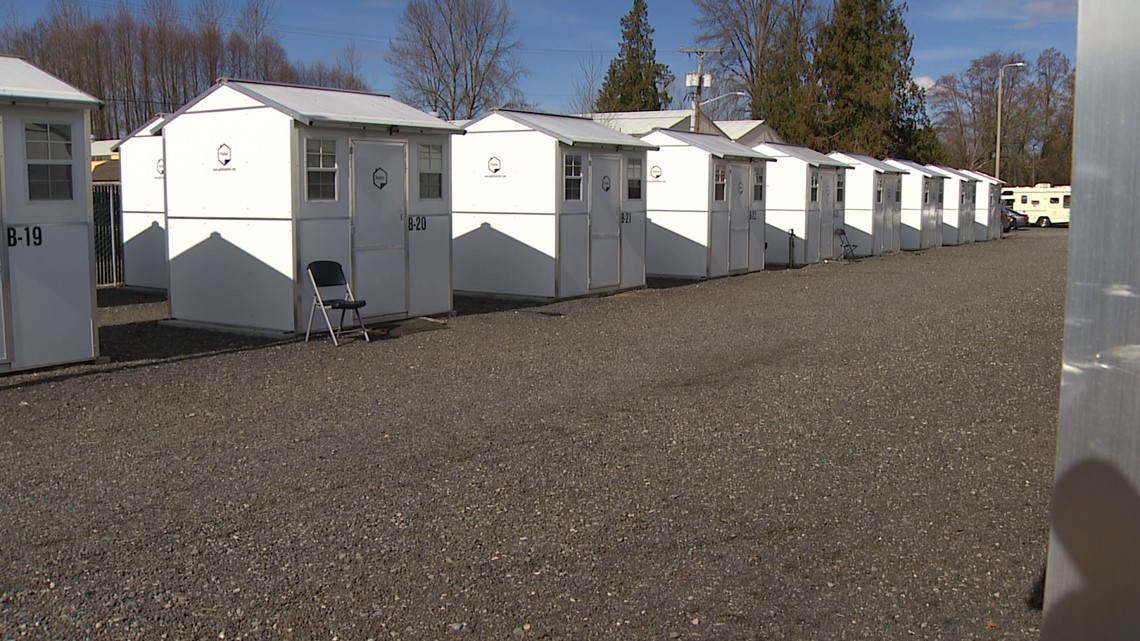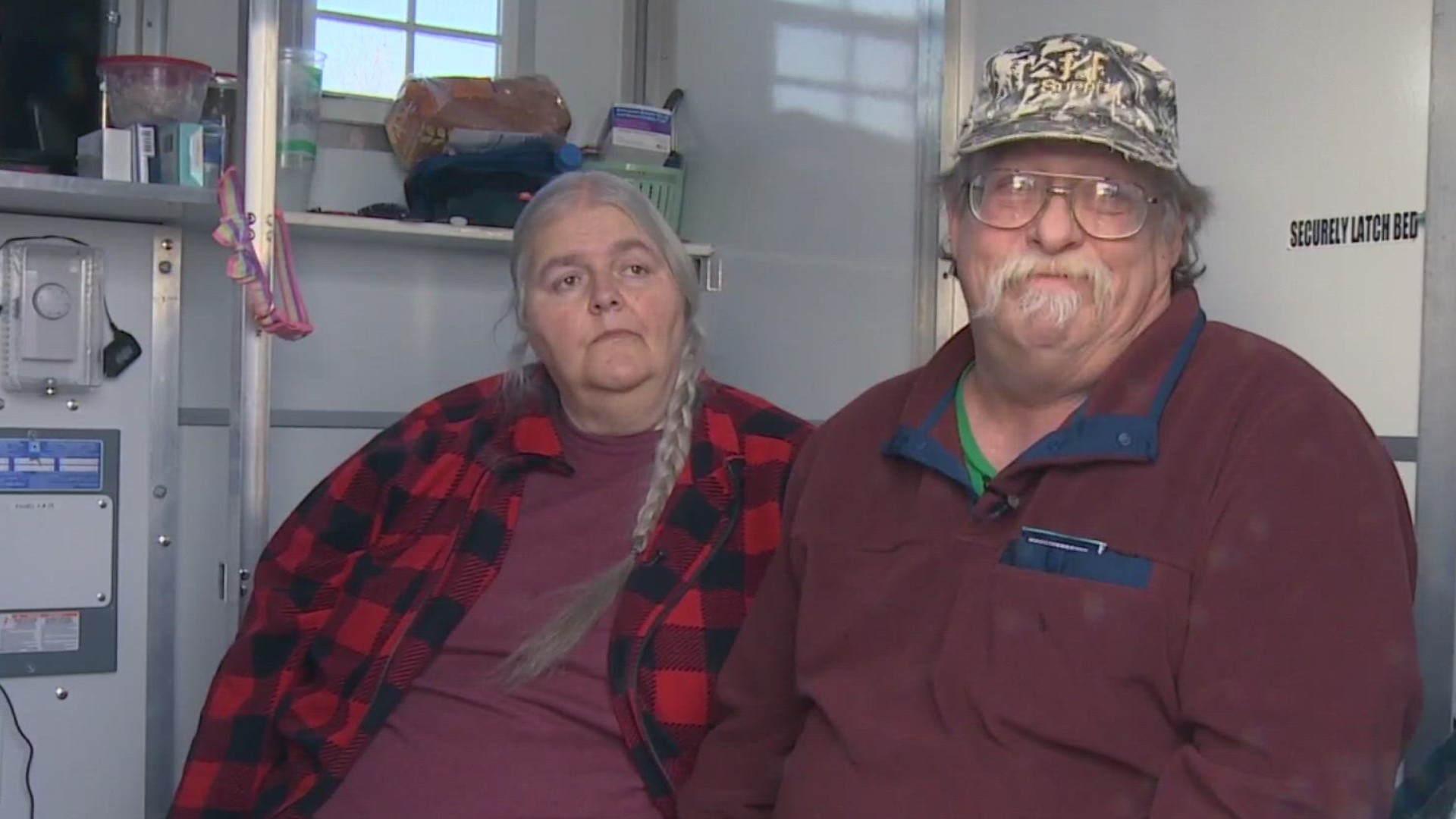BURLINGTON, Wash. — Bruce Newcomb, his wife of 37 years, Lisa, and their dog Lila all share an 80-square-foot home at Burlington's First Step homeless shelter.
Bruce is a disabled former agriculture worker of 40 years and can't work like he used to. They can't afford the rents around town and depleted their savings, so they started living in their car -- which no longer runs.
About a month ago they ended up at the shelter.
"This is our first time being homeless and we're not very good at it," said Bruce. "This place is a godsend."
First Step is Skagit County's only low-barrier shelter. It's comprised of 45 tiny homes and 25 additional beds. All of them are full.


It's the only place police across the county can bring someone at night instead of taking them to jail.
Over the past year-and-a-half, police have dropped off nearly 500 people at the shelter.
It's also a place where people can get three meals a day, do laundry, take a shower, get sober, get stable and work on finding permanent housing.
"There are people who abuse drugs and take advantage of the system, here, but there's a lot of people like us who just have misfortune and really have nowhere else to go," said Bruce.
First Step is funded by a county fee put on real estate transactions, and as the market has cooled, so has the funding.
It costs about $90,000 to operate the facility every month.
Executive Director Jonathan Kline says First Step needs approximately $270,000 to stay open until a new round of funding comes through in July.
"I think it will come together. I don't know how, but we provide a key service and people realize that," said Kline.
But even if that funding miraculously comes through, Skagit County has about a million dollars less to fund homeless services this year. Any money spent at First Step would likely come out of another organization's pocket.
The bottom line is the closure would mean 70 more people back on the streets, and so much hard work to get off of them, lost.
"Having to revert back into that survival mode, it's a little heartbreaking to think of all that success made during that time here going back to nothing," said Kline.
Right now, "survival mode" is starting to creep back into the minds of Lisa and Bruce.
"We're stressing really bad. We've only got like two months left here and ... I don't know," said Bruce, his voice trailing off.

